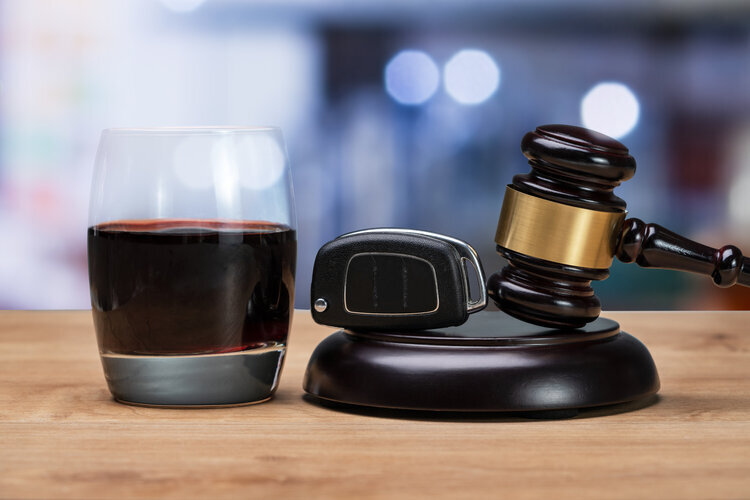Field Sobriety Tests in Indiana: Are They Accurate? What You Need to Know
I. Introduction
Imagine this: You’re driving home after dinner when you see red and blue lights flashing in your rearview mirror. A police officer pulls you over, asks if you've had anything to drink, and soon you're stepping out of the car to perform roadside field sobriety tests (FSTs).
Field Sobriety Tests are a series of physical and cognitive tasks used by Indiana law enforcement to assess whether a driver may be impaired. These tests are common in Operating While Intoxicated (OWI) investigations, but many drivers wonder: Are these tests really accurate?
While FSTs can provide law enforcement with probable cause to make an arrest, the reality is that they’re far from foolproof. Numerous factors can influence the results, and the reliability of these tests has been widely debated.
This article explains what FSTs are, how they’re used in Indiana, and why their accuracy is not always as solid as it seems.
II. Understanding Field Sobriety Tests (FSTs)
Standardized Field Sobriety Tests (SFSTs)
The National Highway Traffic Safety Administration (NHTSA) recognizes three Standardized Field Sobriety Tests:
Horizontal Gaze Nystagmus (HGN) – The officer tracks your eye movement as you follow an object (like a pen or finger) from side to side. Jerky or involuntary eye movement may be seen as a sign of impairment.
Walk-and-Turn (WAT) – You’re asked to walk heel-to-toe in a straight line, turn around, and walk back. Officers look for balance, coordination, and ability to follow instructions.
One-Leg Stand (OLS) – You must stand on one leg while counting aloud for about 30 seconds.
These tests are meant to detect signs of impairment based on coordination, balance, and cognitive performance.
Non-Standardized Tests
Some officers may also use non-standardized tests, which have no scientific validation and are not approved by NHTSA. These may include:
Counting backward
Reciting the alphabet
Finger-to-nose tests
Legal Framework in Indiana
In Indiana, FST results may be used in court to support an officer’s determination of probable cause. However, courts do allow challenges to the way these tests are administered and interpreted.
III. Factors Affecting FST Accuracy
FSTs rely on subjective observation, making them vulnerable to multiple sources of error:
Human Error
Officer Training: Not all officers are equally trained or experienced in conducting FSTs properly.
Subjectivity: Results are based on the officer’s personal observations and judgment.
Inconsistency: Even "standardized" tests may be administered differently from one officer to another.
Environmental Conditions
Uneven or slippery roads
Low lighting
Heavy traffic or noise
Weather factors like rain, cold, or wind
All of these can impair performance—sober or not.
Individual Factors
Medical conditions (e.g., vertigo, arthritis, neurological issues)
Age or weight
Fatigue
Nervousness or anxiety from being stopped by police
These factors may cause someone to "fail" a sobriety test despite not being intoxicated.
Lack of Standardization
Even when following the NHTSA guidelines, there is still room for variation in how tests are explained, timed, and judged.
IV. Scientific Scrutiny of FSTs
What the Research Says
Studies have shown that even standardized FSTs are not always accurate indicators of intoxication:
The Horizontal Gaze Nystagmus test has the highest correlation but can still yield false positives.
The Walk-and-Turn and One-Leg Stand are affected by multiple non-alcohol-related variables.
Not a Direct Measure of BAC
Field sobriety tests do not measure blood alcohol concentration. They are designed to show signs of impairment, not provide scientific proof of intoxication.
Expert Testimony
In court, expert witnesses may be called to testify about the flaws and limitations of FSTs, especially if used as key evidence in an OWI case.
V. Legal Challenges to FST Evidence in Indiana
The Role of a Defense Attorney
A knowledgeable Indiana OWI defense attorney can:
Review dashcam/bodycam footage
Evaluate whether the FSTs were administered properly
Identify inconsistencies in the officer’s report
Legal Arguments Against FSTs
Officer failed to follow proper protocols
Test was conducted in unsuitable conditions
Medical issues were ignored
Officer’s interpretation was subjective or biased
Using Experts
Defense attorneys may bring in medical or forensic experts to question the validity of the officer’s conclusions or the FST methodology itself.
What to Do If You Think the Test Was Unfair
Document everything you remember about the stop. Share it with your attorney immediately. The sooner you act, the better your chances of contesting flawed evidence.
VI. Alternatives and Additional Evidence
Breath and Blood Tests
Unlike FSTs, breathalyzers and blood tests provide measurable BAC levels. However, these too can be challenged based on calibration, timing, or lab procedures.
Other Forms of Evidence
Dashcam or bodycam footage
Witness testimony from passengers or bystanders
Statements made by the officer or driver
Implied Consent in Indiana
By driving in Indiana, you have given implied consent to chemical testing. Refusing a breath or blood test can lead to license suspension—even if you’re not ultimately convicted.
VII. Importance of Legal Counsel
OWI Law Is Complex
An OWI arrest involves criminal, administrative, and often constitutional issues. A qualified attorney can help you:
Challenge the legality of the stop or arrest
Discredit unreliable FST results
Negotiate reduced charges or penalties
Protect your license and record
You Have Rights
Don’t assume you're guilty just because you "failed" a field sobriety test. These tests are subjective, and many cases have been won on the basis of poor police procedure or flawed testing.
VIII. Conclusion
Field Sobriety Tests are widely used in Indiana OWI investigations, but their accuracy is far from guaranteed. Environmental conditions, personal health, and officer error can all lead to false or misleading results.
If you’ve been arrested based on an FST, don’t face the system alone. At Vining Legal, we provide experienced, aggressive OWI defense across Indiana. We’ll review every detail of your case and fight to protect your rights.
Call or text (317) 759-3225 or schedule a consultation to discuss your options today.





